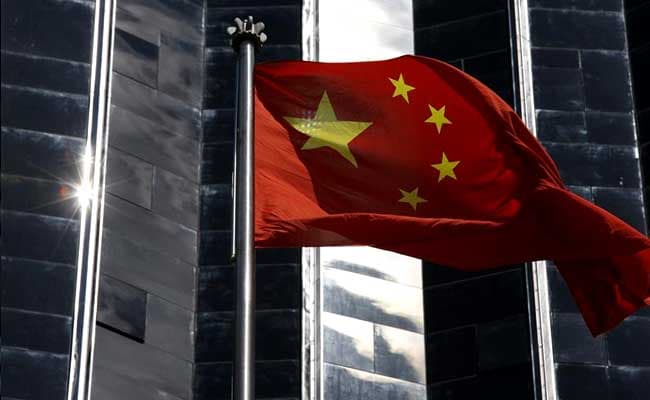
The lecturer stood in an airy hall, clicking through slides showing examples of how governments around the world improve their "environmental civilization" - a concept espoused by Chinese leader Xi Jinping.
The United States has a vast national park system. Germans collect trash with buckets placed inside sewers, they are told.
Sixty gathered cadres - almost all men in their 40s and 50s in uniformly black slacks, black shoes, black hair - sat quietly, absorbing it all.
It's another morning at the Central Committee Party School, the exclusive training ground for the elite apparatchiks groomed to govern China.
Since becoming paramount leader in 2012, Xi has sought to position the Communist Party at the heart of society and promulgate its ideology to skeptical young Chinese. He has policed speech on campuses and encouraged Communist Party cells to expand inside private corporations.
His administration has rolled out slick television propaganda about the party and plastered billboards nationwide promoting the organization's revolutionary socialist spirit.
Playing a crucial role in Xi's campaign has been nearly 3,000 training institutes like the top party school in northwest Beijing, where resident researchers ponder how to boost the party's influence and thousands of visiting cadres are taught how to carry out and maintain its rule.
Government officials recently led foreign journalists on a rare and tightly controlled tour. It was designed to showcase a campus that was sleek, open, in sync with the times - the very image the 68-year-old Communist Party wants to project about itself.
The students who circulate from lecture halls to dorms to cafeterias do not study the same curriculum as "normal" Chinese institutions, such as Tsinghua University down the road.
Here, school officials say, they study the "ideological armaments" that the party relies on to run China: Marxism-Leninism, party development theory, propaganda tactics, Xi Jinping thought.
As he led journalists through the school's dormitories, cafeterias and a cavernous indoor sports facility, Wang Jinlong, the head of campus operations, ticked off a list of foreign delegations that have recently visited.
"The Communist Party, you see, is now open," Wang said as he walked around a man-made lake where students can contemplate quietly after a day poring over Xi's speeches. "We are open, too."
Inviting journalists to tour a key party institution is part of a yearslong effort by the Communist Party to "rebrand," said Jude Blanchette, the head of the China practice at the Crumpton Group and author of "The New Red Guards."
To counter widespread speculation about Xi's murky anticorruption campaign, for instance, propaganda officials in 2017 released a cop drama, "In the Name of the People," that depicted party investigators pursuing crooked officials. The show became a hit.
These days, the Communist Party is trying not only to "normalize and legitimize" itself in the eyes of everyday Chinese but also of foreign countries, which have grown wary of the organization's covert global influence, Blanchette said.
On a recent morning, the school arranged for reporters to sit in on a lecture where officials were learning about environmental sustainability, a topic that just so happened to be politically innocuous.
When asked, school officials said more sensitive subjects that are avoided in most Chinese classrooms can be tackled here, too.
"We discuss the Cultural Revolution and June 4 disturbance to better understand history and choose a better way forward," said Wang Gang, a senior school administrator, referring to the Tiananmen Square protests in June 1989 that were brutally suppressed by the military, leading to hundreds of deaths.
School officials said cadres eyeing promotion to upper ranks, such as provincial-level posts, sometimes put their day jobs on hold to study for three to six months. Those assigned to key functions, such as organization and propaganda departments, come by the campus for weeklong refresher courses.
Officials could not immediately disclose enrollment numbers but said figures have risen during Xi's administration to about 10,000 students in 2018.
Since it was founded in a rural building during the Communist Party's revolutionary days in 1933, the school has occupied an influential place within the organization. Three school presidents also have led China: Mao Zedong, Hu Jintao and Xi Jinping, who headed the school until 2012, when he ascended to China's top leadership post.
In the seven years of Xi's rule, Chinese intellectuals and private business executives have often groused about the thick ideological atmosphere returning to China.
Party members have chafed at a new, daily requirement, such as one dictating that they must study Xi's political doctrine every day through the smartphone app Xuexi Qiangguo - "Study Xi, Strong Country."
School officials tried to strike a progressive tone - by party standards.
"There are people around me who also say we have study a lot, it takes up too much time; it's precisely something the Central Committee is realizing," said Zhang Zhongjun, the school's deputy party secretary.
Other administrators acknowledged that the party needed to evolve with the times. In recent years, they said, the party has conducted public surveys and hired outside consultants to examine whether young Chinese still had faith in it. (They concluded: Yes, they do.)
"We have to be aware that in the current era with the internet and new media, the young people think differently, they're changing," Wang Gang, the senior school administrator, told reporters.
But he left no doubt about the school's loyalties and the function it served.
"What we do here is to enhance the solidarity of the party," Wang said. "We have to serve the governance of the party."
(Except for the headline, this story has not been edited by NDTV staff and is published from a syndicated feed.)Track Latest News Live on NDTV.com and get news updates from India and around the world

